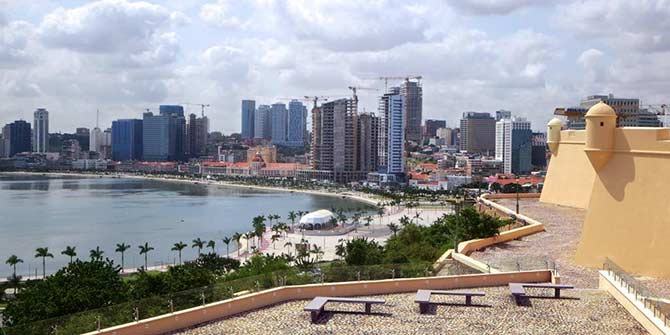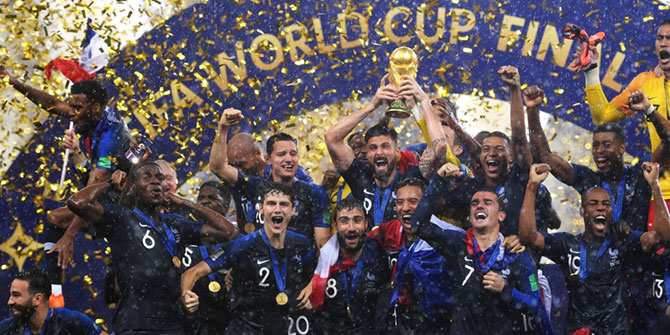Despite headlines describing a new era of greater economic, political and social ties, Barnaby Dye writes of a new shift in the substance of India-Africa relations.
World attention was drawn to Delhi in October 2015 for an India-Africa Forum Summit designed to herald a new era in relations that were already considered to be significant and growing. The event took a far higher profile than the previous forums, with all 54 heads of state invited and red-carpet treatment lavished on the delegations. Big rhetoric ensued while apparently backed by promises of US$10billion in new lines of credit and 50,000 scholarships. Such a high-profile event, along with the promised resources suggests a significant consolidation of India-Africa relations. This has been more recently reinforced by Prime Minister Narendra Modi’s first flagship state visit to Africa that took place in Mozambique, South Africa, Tanzania and Kenya. In light of these high profile signals, this article considers the state and direction of India-Africa relations beyond the headlines, based on interviews conducted in India in March and April 2016.

India-Africa relations have a long history, with Indian Ocean trade extending over hundreds of years and the British colonial government forcing large-scale migration. Development cooperation first started in the 1950s as part of Prime Minister Jawaharlal Nehru’s joining with African leaders like Kwame Nkrumah and Gamal Abdel Nasser to form the Non-Aligned Movement. Indian cooperation proceeded through to the 1990s, offering scholarships, technical training and limited finance.
The economic boom and opening up of India from the early 1990s precipitated a dramatic change in India-Africa relations. Large private sector firms started investing in the African continent and from the year 2000, the Indian government followed with significant increases in technical cooperation, grants, lines of credit and increased scholarship opportunities in India. The high-level conference in 2015 and subsequent state visits of the Modi government pose the question of whether relations between India and Africa are entering a new era of even greater density economically, politically and socially.
However, beneath these headlines, a shift in the substance of the India-Africa relationship seems to be underway. In line with its origin under Mr Nehru, the engagement has until now proceeded under the logic of South-South cooperation that enshrines the values of equality between development partners, of projects being demand-led, and of each country’s absolute sovereignty being respected.
A shift from this stance seems to have been initiated by significant disquiet in both Africa and India. Complaints were made by a number of African heads of state about the quality and timeliness of the Line of Credit (LoC) projects financed by India at the 2015 India-Africa Forum Summit. Raising such concerns publicly in a setting designed to be celebratory suggests the seriousness ascribed to them. Moreover, just before the Forum-Summit, the Indian Express broke a story revealing that 20 per cent of lines of credit had gone to four companies that were unheard of by the business community and mainstream press. The largest of these, Angelique International, bagging 17 per cent of the total distributed value of LoCs. This finding led to public questions, and internal government concerns, about the quality of work done in the LoCs project and the suitability of the companies involved. It also generated allegations of corruption to explain the rapid rise of these firms, ultimately boosting initiatives at policy reform.
Consequently, Mr Modi’s administration has approved changes for government credit in November 2015. Previously, companies would lead negotiations with governments in Africa, entering into MoUs and be designated ‘project promoters’. The future aim is to appoint companies exclusively through a tendering process with a quality-checking, pre-qualification stage managed by the Indian Government’s Exim Bank; ‘rather like the World Bank’ operates (as one source put it to me). The extra stage means that companies themselves do not have an official role in initiating and planning development projects with partners in Africa, a reason arguably behind the monopolising of the credit and allegations by individual companies and allegations of corruption.
Wider ranging changes to improve quality include plans to spend one per cent of the contract on the planning stage and use Indian consultancies to produce the reports. This would aim to solve the capacity gap that meant Indian projects in Africa have poor quality project planning. Additionally, a future ambition is to make third-party project management consultants mandatory to ensure quality and speed of delivery, rather like the World Bank insists. Furthermore, project monitoring is to be stepped up by both embassies and the Exim Bank. This amounts to wide ranging reform that increases bureaucracy, scrutiny and oversight in an attempt to boost quality.
One explanation for these changes, according to a corporate executive, is that ‘big bureaucratic and political interests’ are at work because ‘everyone wants a bit of (the Line of Credit monies) … now’ (quote from a business executive). He suggests that, particularly with the increases in concessional finance promised at the 2015 Forum, more established and connected Indian companies are getting interested in Africa and moving behind the scenes to ensure that they benefit. Another explanation could be the foreign loan programme needing to be justified to an often sceptical Indian parliament and the public wanting development ‘at home’.
The need for an improved delivery of LoCs is also related to their use as a foreign policy tool, which includes gaining support among partner countries in Africa for key strategic aims such as securing an Indian seat on the UN Security Council. The continued negative press around Indian loan projects in Africa would neuter lines of credit as a beneficial foreign policy tool. In any case, India seems to be adopting a more interventionist, stringent, and one could even say conditions-laden, export-credit process. While not micromanaging projects in the way the World Bank does, or demanding environmental and social assessments that can theoretically bar a project, they certainly are establishing a more hands-on regime.
Arguably all of these changes amount to a substantive shift in the framing and policy of India-Africa, and could certainly have implications for the continent. On the one hand, the relationship seems to have moved to a higher gear with a step change in the resources India is throwing towards relations with Africa. Additionally, the model of South-South cooperation is changing from the deliberately hands-off, no conditions approach with absolute respect for sovereignty, to a somewhat more interventionist role. A more stringent approval process, more active monitoring and wider ambitions for sectoral development cooperation, suggests India is asserting its need to more actively plan and police the engagement.
Any claim that India is departing from the core values of South-South cooperation is controversial and will be virulently rejected by many with assertions of India’s different approach, its respect and abiding demand-led mantra. It may also be resisted by governments in Africa who feel India is becoming a burdensome partner. But with the more hands-off policies seeming to fail, with democratic accountability rationale at home and foreign policy ambitions requiring a positive Indian image in Africa, is India-Africa moving towards the more interventionist workings of ‘traditional’ donors? Even if this is the case, the extent to which the Indian government has the capacity to achieve such change and the ability for more intervention to achieve development outcomes remains to be seen.
Read Barnaby Dye’s blog post on a new direction in Brazil-Africa relations.
Barnaby Dye (@BarnabyJDye) is a DPhil student at Regents Park College, Oxford studying in the Department of Politics and with a background in Geography.
The views expressed in this post are those of the author and in no way reflect those of the Africa at LSE blog or the London School of Economics and Political Science.






1 Comments